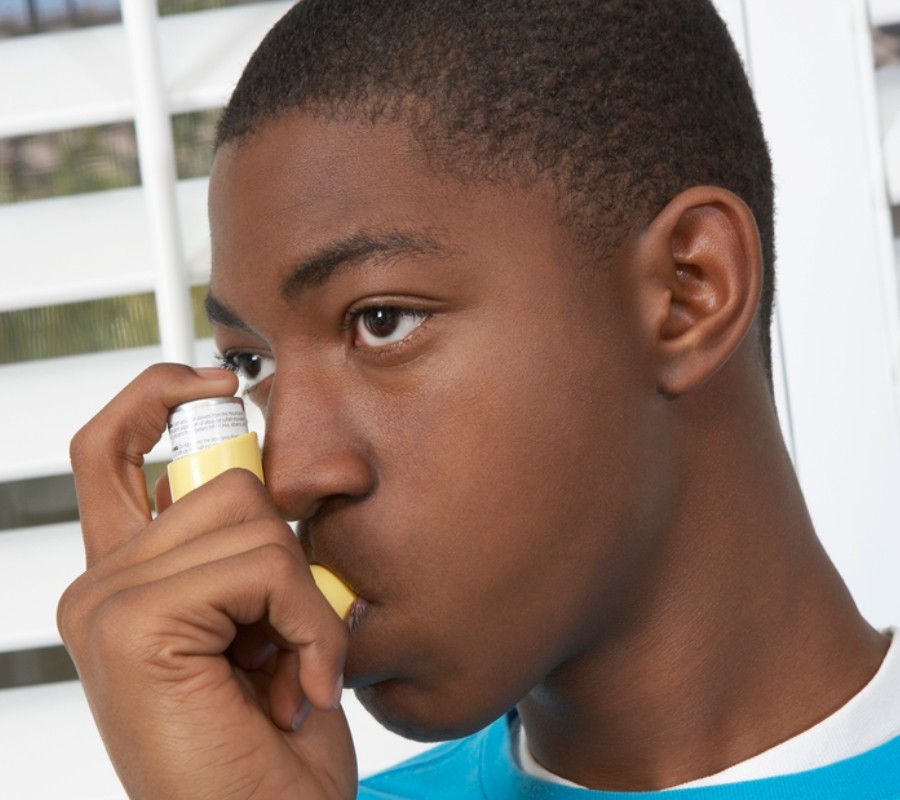A new drug called Benralizumab showed promising results in reducing asthma attacks that cannot be prevented or treated by common asthma inhalers.
Benralizumab is a biologic agent able to target and destroy eosinophils, which are white blood cells related to allergies that are prominent in asthma patients that suffer from severe episodes. The research on benralizumab was carried out by Dr. J. Mark Fitzgerald, a professor of respiratory health at the University of British Columbia. The drug has not yet been approved by the U.S. Food and Drug Administration, but if it were approved it could help patients with uncontrollable asthma, being a more potent remedy than Cinqair and Nucala.

Benralizumab can defeat asthma attacks
Dr. Fitzgerald investigated benralizumab on behalf of AstraZeneca, and published the results of the research at the European Respiratory Society meeting in London. What differentiates benralizumab from other asthma treatments is that it should be administered in less-frequent doses, such as once every two months.
According to Medicare, common asthma drugs cost from $25 to $30 grand, although they are covered by medical insurance. The research had two trials. The first reviewed 1,300 patients aged 12-75 for 52 weeks. Researchers separated them on three different groups with different frequency of benralizumab intake.

One group took the drug once every four weeks. The second group took the drug every two months and the other was administered a placebo. The participants also received high doses of common corticosteroids and inhalers for asthma control.
Patients who were being administered benralizumab showed a reduction of 28 to 36 percent in asthma flare-ups, paired with an overall improvement in lung function. But benralizumab had side effects, similar to those of common flu, as 20 percent of the patients receiving the drug presented symptoms.
Although the tests on benralizumab were performed on subjects older than 12, it seems that the drug is also safe for children older than 6, but its unprecedented side effects may prove to be an obstacle for benralizumab’s approval as a standard medication. The second trial grouped 1,200 patients in a similar fashion to the first trial.
The results suggest that benralizumab can reduce asthma flare-ups for 50 percent of the patients, compared to those that received a placebo. Although results seem promising, 13 percent of the patients saw a worsening of their asthma, and 12 percent of the whole group saw common flu symptoms.
Dr. Alan Mensch, from Northwell Health’s Plainview Hospital in New York, believes that benralizumab is a breakthrough drug in attempts to treat severe asthma, arguing that the worse asthma attacks have been untreatable up to this point.
The most common respiratory illness
Asthma has no cure and patients are prone to suffering flare-ups at any moment. People with asthma learn to manage their illness, and although they can perform most activities just like any person, asthma episodes are still fairly common.
People often get diagnosed with asthma before they are five years old, as pediatricians always check the patient’s airways for allergies and respiratory diseases. Doctors review if the patient frequently coughs at night and if its breathing problems tend to worsen after strenuous physical activity.

Asthma flare-ups are characterized by intense coughing and wheezing. The airways become constricted, and the lungs swell, causing the mucus to clog the paths that carry air to the lungs. Patients control their asthma taking medicine prescribed by their doctor, and also by avoiding contact or ingestion of harmful particles.
Asthma medication is taken through pills, inhalation. For asthma flare-ups, patients take quick-relief medicines that can deal with the symptoms, but often these drugs have side effects if taken continuously. Long-term control drugs can also be administered, but they are not very effective in relieving the symptoms inherent to asthma flare-ups.
According to the Centers for Disease Control and Prevention (CDC), asthma costs the U.S. government $56 billion each year and taking care of a child with asthma costs over $1,000 per year. In the U.S., at least 1 out of every 11 children has asthma, while 1 out of every 12 adults also has the disease. Asthma is deadly, as the CDC reports that at least nine people die of asthma each day.
Benralizumap is AstraZeneca’s first respiratory biologic for chronic obstructive pulmonary disease. Specialists assure that even if the first trials for benralizumap were not perfect, the development of a drug that can relieve patient’s severe asthma attacks and that can be administered once every two months, is of great importance.
Benralizumap can effectively reduce the adverse effects of a severe asthma flare-up. However, the disease still does not have a cure, as it is a long -term disease where the airways become easily inflamed, forcing the patient to steer attention from whatever it is doing towards a reactive disease that can be lethal.
Source: UPI
